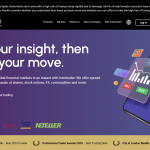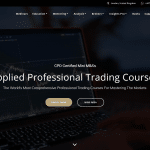Forex trading is a legitimate and highly regulated financial market, with trillions of dollars traded daily worldwide. However, like any financial sector involving money movement, the forex industry attracts both trustworthy brokers and unscrupulous operators. Understanding how to differentiate between legitimate forex brokers and scams is critical for traders.
This article explores the key signs of forex broker scams, how to verify broker legitimacy, and best practices to avoid fraud.
What Makes a Forex Broker a Scam?
- Unregulated or improperly regulated by respected financial authorities
- Promises of guaranteed returns or profits with little risk
- Lack of transparency in trading terms, fees, or company information
- Difficult or impossible withdrawals of client funds
- Pressure tactics to deposit more money or buy expensive add-ons
- Fake or copied websites mimicking real brokers
How to Spot a Forex Broker Scam
1. No Proper Regulation
Legitimate brokers are licensed by authorities like the FCA (UK), ASIC (Australia), CySEC (Cyprus), or FSCA (South Africa). Lack of any regulatory status is a major red flag.
2. Unrealistic Promises
Scam brokers often promise guaranteed high profits or risk-free trading. Genuine brokers cannot guarantee profits due to market volatility.
3. Poor or No Customer Support
Difficulty reaching support or evasive answers when asking about withdrawals or terms indicate a potential scam.
4. Withdrawal Issues
If a broker delays or refuses withdrawal requests, especially with excuses, it may be fraudulent.
5. Pressure to Deposit More
Pushy sales tactics urging large deposits or purchases of training or software are common in scams.
6. Fake Reviews and Endorsements
Beware of overly positive reviews on unofficial sites or celebrity endorsements that seem unrelated.
How to Verify a Forex Broker’s Legitimacy
- Check the broker’s registration number on official regulator websites
- Look for transparent company details including physical address and management info
- Use demo accounts to test trade execution and withdrawal processes
- Read user reviews on reputable financial forums and social media
- Confirm whether the broker offers negative balance protection and segregated client accounts
Best Practices to Avoid Forex Scams
- Always choose brokers regulated by Tier-1 authorities
- Avoid brokers promising guaranteed returns or insider tips
- Start with small deposits and test withdrawals
- Stay informed with forex trading education and regulatory updates
- Never share your account login or personal documents with unknown third parties
Key Takeaways
- Not all forex brokers are scams; many are highly regulated and trustworthy
- Scams typically involve unregulated brokers with unrealistic promises and withdrawal problems
- Proper due diligence through regulator checks and user feedback is essential
- Use demo accounts and small deposits when starting with a new broker
- Report suspected scams to regulators to protect yourself and others
Frequently Asked Questions
Are all forex brokers scams?
No, many forex brokers are fully legitimate and regulated by respected financial authorities.
How can I avoid forex broker scams?
Verify the broker’s regulation, check reviews, test with small deposits, and avoid guarantees of profit.
What regulators ensure broker legitimacy?
Key regulators include FCA (UK), ASIC (Australia), CySEC (Cyprus), and FSCA (South Africa).
What should I do if I suspect a broker scam?
Stop trading immediately, avoid further deposits, and report to your local financial regulator.
Can I recover money lost to a scam broker?
Recovery is difficult but reporting and legal action may help. Prevention is best.




Leave a Reply
Please log in or register to share your thoughts.